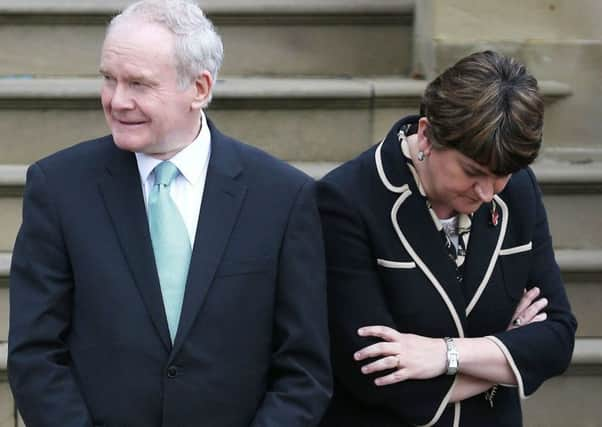Stormont turmoil meant NI leaders had no voice in Lords Brexit report


The 92-page report from the House of Lords’ EU Committee, published today, looked into the possible fates awaiting Scotland, Wales and Northern Ireland outside the European Union – and found that the latter country will be “profoundly” impacted.
Among its conclusions is that whilst Northern Irish unionists are worried about what “special status” may actually mean (something demanded by Sinn Fein, the SDLP and Alliance), Brexit has raised “unique issues” for the Province which require a “unique solution”.
Advertisement
Hide AdAdvertisement
Hide AdIt also said although the effect upon Northern Ireland was of “particular importance” to the committee, “it was not possible to take evidence from the Northern Ireland Executive or from leaders of the political parties”.
By contrast, the committee visited Edinburgh and Cardiff and heard from the devolved governments based in both capitals, plus leaders of both nations’ opposition parties.
The inquiry had run during January, February and March, and so the committee “did not consider it appropriate or feasible to seek evidence from the party leaders in Stormont” because by then the Province was in the grip of an election brought about by Martin McGuinness walking out of government, followed by a still-fruitless period of negotiations aimed at restoring an Executive.
Instead, less-senior figures including DUP MP Sammy Wilson and SDLP MP Mark Durkan – plus ex-UUP first minister David Trimble and long-departed Northern Ireland secretary Peter Hain – communicated views on Brexit to the committee.
Advertisement
Hide AdAdvertisement
Hide AdIn its conclusions, the report said Northern Ireland “will be profoundly affected by Brexit” (as opposed to, for example, its less-definitive conclusion that Wales “could be profoundly affected”).
It said cross-border trade, agriculture and food, energy, transport, fisheries, access to EU labour, healthcare provision, tourism, and security cooperation will all be affected.
It said there is an “over-riding need to preserve the peace process”, and added the committee was “heartened” by statements from the UK and Irish governments about trying to “avoid the imposition of a hard border”.
It adds: “Special status’ is a politically contentious term in Northern Ireland, and we acknowledge the unionist community’s concerns that no aspect of the Brexit negotiations should undermine Northern Ireland’s ties to the rest of the UK.
Advertisement
Hide AdAdvertisement
Hide Ad“Yet at the same time, the specific circumstances in Northern Ireland give rise to unique issues that will need to be addressed during the Brexit negotiations.”
The committee which drew up the report is made of five Labour lords, five Tory ones, three Lib Dems and five other peers.